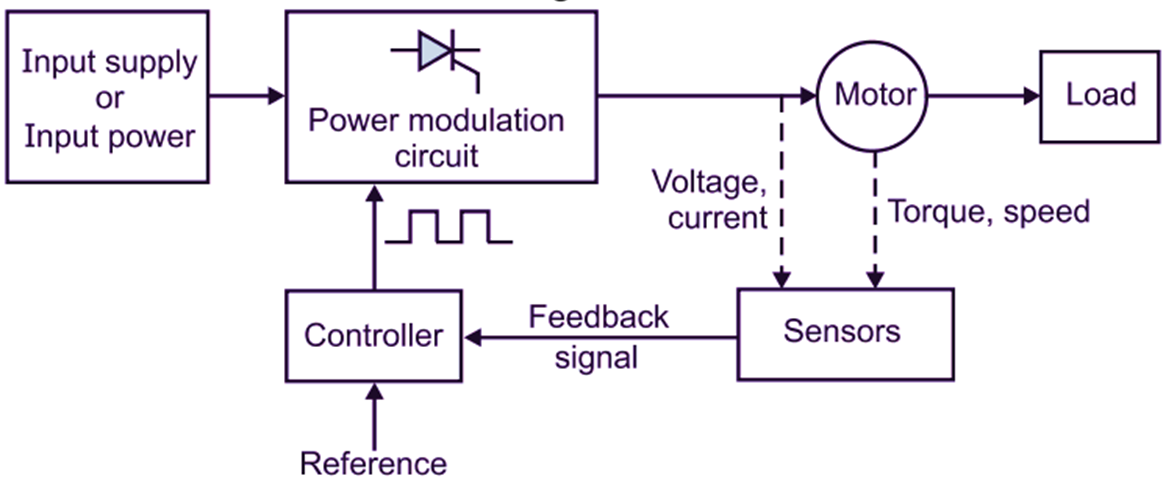Search results: 52
The course introduces students to microprocessor architecture and programming as well as digital control principles. Students will learn to interface various components with microcontrollers as and use these devices to design simple application. Laboratory sessions will help familiarise students with the use of microprocessors for data acquisition, processing and control through the use of digital to analogue converters, analogue to digital converters and other peripherals.
The Objective of the course is to learn MATLAB skills in numerical methods, programming and graphics; apply MATLAB to Mathematical problems and obtain solutions; and to present these solutions in a coherent manner for assessment.
The aims of this course are to introduce the elements and practicalities of computer programming through the MATLAB mathematical computing environment.
OBJECTIVE: The course is designed to help students develop a fundamental understanding to computer programming through the use of programming language.
AIM: At the end of the course, it is expected that students will understand the concept behind flowcharts and algorithms and be able to apply them in finding solutions to problems in numerical methods.
PREREQUISITES: It is assumed that the student has some background in Computing and Numerical Methods.
 Organic chemistry is the study of the structure, properties, composition, reactions, and preparation of carbon-containing compounds. Most organic compounds contain carbon and hydrogen, but they may also include any number of other elements (e.g., nitrogen, oxygen, halogens, phosphorus, silicon, sulfur).
Organic chemistry is the study of the structure, properties, composition, reactions, and preparation of carbon-containing compounds. Most organic compounds contain carbon and hydrogen, but they may also include any number of other elements (e.g., nitrogen, oxygen, halogens, phosphorus, silicon, sulfur).
Organic chemistry is the study of the structure, properties, and reactions of organic compounds, which are compounds containing carbon. Carbon is a unique element that can form strong bonds with itself and other elements, leading to the vast and diverse array of organic molecules found in nature and made by humans.
Organic chemistry has a wide range of applications, impacting many aspects of our lives such as in:
- Medicine: Organic chemistry is used to develop new drugs, such as antibiotics and painkillers, as well as to understand how drugs work in the body.
- Materials: Organic molecules are used to make a variety of materials, including plastics, textiles, and dyes.
- Fuels: Organic compounds like gasoline and biodiesel are used as fuels for transportation.
- Food: Organic molecules are the building blocks of all living things, and understanding organic chemistry is essential for food science and agriculture.
Studying organic chemistry can be challenging, but it is also rewarding. It is a fascinating and intellectually stimulating field that offers a deep understanding of the world around us.
We trust that you will enjoy this journey with us.
Dr Solomon Marfo, Dr Ato Fanyin-Martin, Dr Cornelius B. Bavoh.
Principles of Management will help students to understand the meaning of management, the functions of management, evolution of management and the various schools of thought, goals and objectives of management, decision making in an organisation, leadership styles and theories, power, motivation and communication in an organisation
This course is ES 279 Principles of Thermodynamics for students in Essikado campus. The course is being taught by Dr. Kenneth Asamoah Boateng.
Course Description
This course is meant to provide students with a platform to learn MATLAB/Simulink and LabVIEW quickly and successfully. Students should be able to write simple scripts in MATLAB, design controllers in MATLAB and Simulink.
Content
· Introduction to general Engineering problem solving principles.
· MATLAB: Introduction to the MATLAB environment: Variables, scripts, and operations.
· Visualization and programming, solving equations and curve fitting, Symbolics, Simulink®, file I/O, building GUIs.
· Application of MATLAB for circuit analysis and introduction of important toolboxes for control engineering, signal processing and communication systems simulation through simple mini projects.
· There will be a scenario week where students will be tasked to use MATLAB to solve any electromechanical engineering problem of their choice.
This course explores the intersection of creativity and entrepreneurship, equipping students with the knowledge and skills to foster innovative thinking and apply it to entrepreneurial endeavors.
Through a combination of theoretical concepts, practical exercises, and case studies, students will gain a deep understanding of the creative process, entrepreneurial mindset, and strategies for successful innovation-driven ventures.
This Business Entrepreneurship course provides a comprehensive overview of the essential principles and practices of starting and managing a successful business. Students will explore key topics including opportunity recognition, business planning, financial management, marketing strategies, and operational efficiency. The course emphasizes practical application through case studies, interactive projects, and real-world examples. Students will also develop critical skills such as problem-solving, decision-making, and leadership.
By the end of the course, participants will be equipped with the knowledge and tools to launch their entrepreneurial ventures and navigate the challenges of the business world effectively.
